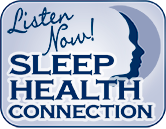Sleep Apnea and Diabetes: studies show an up to 80% connection
Archive for Monday, November 15, 2010
Monday Medical: Sleep apnea linked to diabetes
By Jane Dickinson/For the Steamboat Today Monday, November 15, 2010
“Sleep is the golden chain that ties health and our bodies together.”— Thomas Dekker (1572-1632)
Sleep — it’s more important than you think. Healthy sleep has numerous benefits, while sleep disorders have been linked to everything from drowsy driving to diabetes.
Research has shown that as many as 80 percent of white males with Type 2 diabetes also have sleep apnea, which can be a serious disorder. Although Type 2 diabetes puts people at higher risk for heart disease and stroke, adding sleep apnea on top of it multiplies that risk even more.
We are just now discovering how crucial sleep is to our health and well-being. According to the National Heart, Lung and Blood Institute, sleep helps us improve learning, memory and mood, while lack of sleep causes slower thinking, confusion and difficulty focusing. CONTINUE






(630) 369-5508